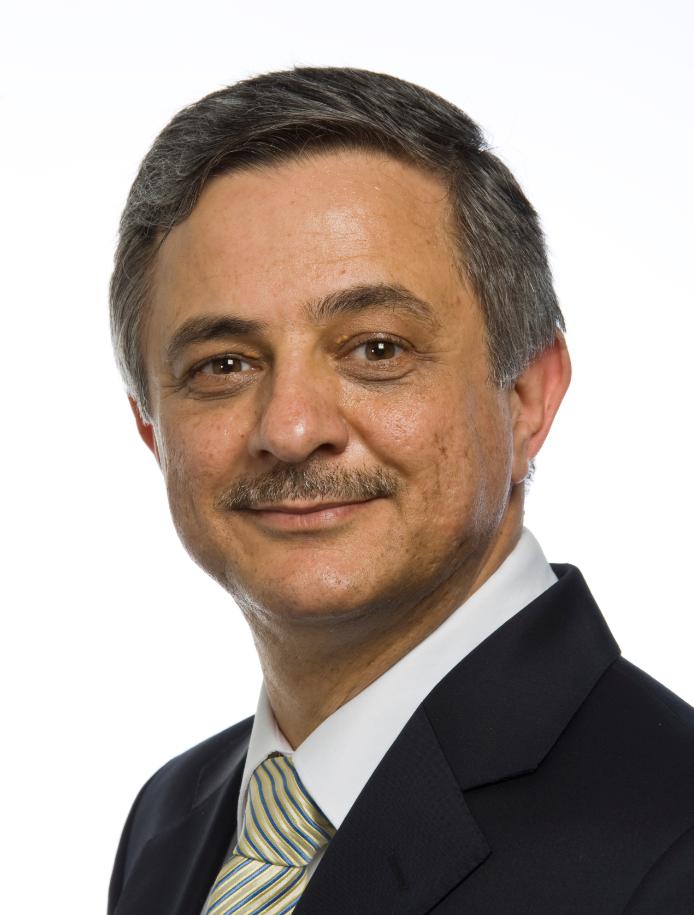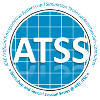Welcome to the Workshop on Human Factors in Intelligent Vehicles in its second edition.

This workshop is promoted by IEEE ITS Society’s Artificial Transportation Systems and Simulation (ATSS) Technical Activities Sub-Committee.
The workshop will take place in the Sofitel Gold Coast Broadbeach , Luxury Gold Coast Hotel on Sunday 23 June 2013.
It is the second edition to be co-placed with the 2013 IEEE Intelligent Vehicles Symposium, to be held in Gold Coast, 23-26 June 2013.
NEWS:
2013/01/15 The submission deadline has been extended to March 1st 23:59 CET.
Aim and Scope
The Workshop on Human Factors in Intelligent Vehicles (HFIV’13) aims to foster discussion on issues related to the analysis of human factors in the design and evaluation of intelligent vehicles (IV) technologies, in a wide spectrum of applications and in different dimensions.
The HFIV’13 welcomes and encourages contributions reporting on original research, work under development and experiments of different fields related to Human Factors.
It is expected to build upon a proper environment to disseminate knowledge and motivate interactions among the technical and scientific communities, practitioners and students, allowing state-of-the-art concepts and advances to be further developed and enhanced.
IV technologies have experienced a great improvement in the last couple of decades, turning vehicles into more interactive counterparts in transportation and mobility systems. However, the impact of such technologies on traffic awareness for the driver and driver’s behaviour towards improving driving performance and reducing road accidents still demands proper tools and approaches. While the feasibility of incorporating new technology-driven functionality to vehicles has played a central role in the automotive design, not always safety issues related to interaction with the new in-vehicle systems have been taken into consideration. Additionally, other aspects are equally important and need to be analyzed, such as the impact technologies that support specific driving functions play on the overall driving task, as well as their impact on the transportation system overall performance. Besides current industrial achievements that feature today’s vehicles with a number of important driving assistance systems, the perspective of autonomous driving vehicles populating urban environment pose even more challenging issues.Thus, the information and functionality that relies on new ways of communication has to be presented in a non-intrusive way that complies with specific design requirements. A system that guarantees efficiency of use, comfort and user satisfaction can contribute to a more conscious driving behaviour that would directly result from the adoption of IV technologies.
Topics of Interest
Some topics of interest include (but are not limited to) the following:
- Intelligent user interfaces
- Human-machine interaction
- Human-in-the-loop simulation
- Cognitive aspects of driving
- Human behaviour and capability, affecting system’s design and operation
- Modeling and simulation in driver’s behaviour analysis
- Ergonomics of traveler information systems
- Tools and approaches to analyze human factors
- Behavioral elicitation and influence
- Anthropometric layout of vehicular technical systems
- Methodologies to optimize overall system performance
- Mixed Reality
- Cross-Cultural Design
- Augmented Cognition
- User Experience and Usability
- Cognitive Modeling
- Effects of in-vehicle systems on driver performance
- Tools and methodologies for usability assessment
- Input/Output modalities in system ergonomic design
- Anticipating reactions through leaning and adaptation
- Methodologies for driver training
Paper Submission and Publication
Prospective authors are invited to submit contributions reporting on their current research and ideas that motivate discussion during the workshop. Each paper will be analyzed by an International Program Committee according to relevance and potential contribution. Accepted papers will be included in the Workshop Proceedings in a digital format and will be available in IEEEXplore. Selected high quality papers of the Workshop will have a publication opportunity in a special issue of the IEEE Intelligent Transportation Systems Magazine.
Authors must follow the IEEE Conference format in the preparation of their manuscripts of maximum 6 pages in standard IEEE double column PDF format for peer-review by the workshop International Program Committee. All accepted papers will imply that at least one of the co-authors attends the workshop to present the work. Authors will be given a certain time to orally present their papers and discussion will be actively motivated among attendees.
Detailed submission instructions can be found on the Workshop Web site at HFIV’13, under the Submissions option.
Manuscript submission
HFIV’13 Workshop
IEEE IV’13
Oganizing Committee
Institute of Ergonomics, Department of Mechanical Engineering, Technische Universität München, Germany
Department of Informatics Engineering, University of Porto, Portugal
International Program Committee
Heiner Bubb, Institute of Ergonomics, Technische Universität München, Germany
Enrique Cabello Pardos, Universidad Rey Juan Carlos, Madrid, Spain
José Luis Alba Castro, Universidad de Vigo, Vigo, Spain
Antonia Conti, Institute of Ergonomics, Technische Universität München, Germany
Hussein Dia, AECOM Australia & New Zealand, Australia
Armin Eichinger, Institute of Ergonomics, Technische Universität München, Germany
Monica Faria, University of Aveiro, Portugal
Fernando García Fernández, Universidad Carlos III, Madrid, Spain
Heinrich Hußmann, Ludwig Maximilians Universität München, Germany
Moritz Körber, Institute of Ergonomics, Technische Universität München, Germany
Michael Krause, Institute of Ergonomics, Technische Universität München, Germany
Ian Marsh, SICS, Swedish ICT, Kista, Sweden
Zeljko Medenica, University of New Hampshire, USA
Brendan Morris, University of Nevada, Las Vegas, USA
Maria Lucia Okimoto, Universidade Federal do Paraná, Brazil
Philippe Palanque, University Paul Sabatier, Toulouse, France
Annie Pauzie, French Institute of Science and Technology for Transport, France
Alexander Paz, University of Nevada, Las Vegas, USA
Marcelo R. Petry, University of Porto, Portugal
Mehran Shirazi, Simon Fraser University, Canada
Matteo Vasirani, Rey Juan Carlos University, Spain
Janet Wesson, University of Port Elizabeth, South Africa
Yan Yang, Massachusetts Institute of Technology, Cambridge, MA, USA
Manuscript preparation
The 2nd HFIV Workshop welcomes contributions within the scope and topics of the forum. While preparing your manuscript, please do follow the same formatting guidelines specified by IEEE IV’13 main conference standard IEEE double column PDF of maximum 6 pages .
For the final version of the papers, please use Word or Latex templates and test the pdf file using the Papercept tool to avoid problems caused by wrong paper formats.
Further details on formatting, frequently asked questions and templates are available on the Conference Web Site.
Manuscript submission
Contributions must be electronically submitted in PDF files only, via the Papercept tool to the workshop organizers for peer-review by the workshop International Program Committee.
Please, to upload your paper follow the procedure below:
1. Log into the Papercept tool.
2. Select workshop submission
3. Specify the following code number for the Workshop on Human Factors in Intelligent Vehicles: 31mbi
Reviewing process
The reviewing process of contributions is certainly one of the most important aspects of building a strong, attractive and stimulating forum for practitioners and the scientific community. Each manuscript submitted to HFIV’13 will undergo a peer-reviewing process by at least three members of the Workshop’s International Programme Committee (IPC) to ensure accepted papers will be of great interest and motivate an open and broad discussion among the audience. Contributions will be reviewed according to relevance to HFIV’13, originality and novel ideas, technical soundness and quality of presentation. Given the nature and aims of the forum, undergoing projects bringing into discussion state-of-the-art and cutting-edge ideas and novel trends are highly encouraged.
Authors of accepted papers must follow and carefully consider reviewers’ comments, guidelines, and suggestions during the preparation of their camera-ready version for inclusion in the workshop proceedings in a digital format.
Publication
Accepted papers will be included in the workshop proceedings in a digital format and will be made available through IEEEXplore.
Additionally, selected high quality papers of the Workshop will have a publication opportunity in a special issue of the IEEE Intelligent Transportation Systems Magazine.
At least one co-author of each paper must confirm registration at the workshop as well as the oral presentation during the event to ensure the paper will be considered for publication.
Authors will be given a certain time to orally present their papers and discussion will be actively motivated among attendees.
Camera-ready manuscripts must be sent to the workshop chair due on April 11, 2013.
Conference Program
The workshop will take place on Sunday 23 June 2013 at 9:15, in the Sofitel Gold Coast Broadbeach, Luxury Gold Coast Hotel, room Paradise 1.
You can access the IEEE IV’13 conference program through the Conference Web Site.
Keynote Speaker
Short bio

Dr. Hussein Dia is a Civil Engineer with broad experience in smart infrastructure systems and specialisation in Intelligent Transport Systems (ITS). He has 28 years of experience in public and private sector organisations, and has spent the last 20 years of his career working in the smart transport systems field as an academic, educator, researcher and more recently as a Director of ITS in a global infrastructure consulting firm. Before joining the private sector in 2009, Hussein was Director of the ITS Research Laboratory at the University of Queensland (1998-2008). He was also a Director of ITS Australia between 2008 and 2012. He is currently Editor of the international academic journal IEEE Transactions on ITS (SCI Impact Factor 3.452 - journal ranked number 1 among all publications in the field of transportation and number 12 among all IEEE Publications).
Throughout his career, Hussein has focused on the development of technology driven transport systems and techniques for transport management and network operations, and has helped develop the methodologies required to evaluate their impacts and demonstrate their benefits. Through his research and consulting background, Hussein has made significant contributions, innovations and extensions to best practice in ITS and modelling of transport systems. His standing in the profession is highlighted by more than 100 publications, speaking engagements to more than 40 conferences and symposia, membership on technical committees of national and international ITS conferences, and invitations for keynote addresses, peer review and technical audits of national and international ITS projects.
In recognition of Hussein’s contributions and standing in the ITS field, he was recently invited by the Road Engineers Association for Asia and Australasia (REAAA) to deliver the Keynote Address “Delivering World Class ITS Operations” to the REAAA Roadshow in New Zealand between 15-21 August 2012. Hussein was also member of the International Road Federation (IRF) ITS committee which published the IRF Manifesto on ITS which was launched in October 2012 during the 19th ITS World Congress in Vienna.
Hussein is a Fellow of the American Society of Civil Engineers, Fellow of Engineers Australia, and Fellow of the Institute of Transportation Engineers.
Dr. Hussein Dia will present the topic with the title: "Mimicking Human Senses: The Convergence of Sensor-Based and Connectivity-Based Vehicle Technologies"
Summary
The research community and automotive industry around the world are increasingly developing sensor-based solutions to increase vehicle safety in situations where driver error is most common. As part of a more interconnected world, our vehicles are also increasingly becoming the ultimate mobile device, and we the humans, are becoming “connected drivers” with access to information that can be shared between businesses, people, organisations and infrastructure. As our vehicles become increasingly connected and equipped with sensor-based systems, they will become self-aware, contextual and eventually autonomous. A number of technology, engineering, legislative and human factors/ behavioural issues still need to be addressed before developing successful offerings that are safe, reliable and non-distracting to ensure they attract consumers on the emotional level and convince them on a rational level.
This presentation first explores the complexity of urban mobility and the role of vehicle and infrastructure technologies in providing innovative solutions that support smart, connected and liveable cities. It also examines the forces of change with an emphasis on the convergence of sensor-based and communication-based vehicle technologies, their implications, and the likelihood that they will achieve wider adoption. The analysis will cover the limitations of each of the sensor-based and connectivity-based solutions, and outline how the convergence of the two approaches will facilitate adequate mimicking of human senses, increase the inputs that are available for decision making and reduce the need for more sophisticated artificial intelligence. The analysis will also demonstrate how convergence would deliver better safety, mobility, and self-driving capability than either approach could deliver on its own.
While the presentation highlights the potential promise these technologies hold for making the transport system more compatible with smart cities and sustainable development, it also emphasises that there are still significant obstacles on the path to convergence including the requirement for reliable and intuitive human-machine interface (HMI), improved positioning technologies, high resolution mapping and standardisation.
HFIV’13 Workshop Final Program
| 9:15-10.00 | Invited Talk "Mimicking Human Senses: The Convergence of Sensor-Based and Connectivity-Based Vehicle Technologies", Dr. Hussein Dia, AECOM Australia & New Zealand, Australia. |
| 10.00-10.30 | "Forward Collision Warning Systems Using Heads-Up Displays: Testing Usability of Two New Metaphors"; Patrícia R. J. A. Alves, Joel Gonçalves, Rosaldo J. F. Rossetti, Eugénio C. Oliveira and Cristina Olaverri Monreal |
| 10.30-11.00 | Coffee break |
| 11.00-11.30 | "Human-Centric Analysis of Driver Inattention"; Ronnie Taib, Kun Yu, Jessica Jung, Anne Hess and Andreas Maier |
| 11.30-12.00 | "User Experience Evaluation in an Automotive Context", Moritz Körber, Armin Eichinger, Klaus Bengler and Cristina Olaverri-Monreal |
| 12.00-12.30 | "Vehicle Operation Safety Monitoring Using Context Based Metrics: A Case Study"; James Ward, Stewart Worrall, Gabriel Agamennoni and Eduardo Nebot |
| 12.30 | Lunch |
Inquiries and further information
Please send your requests by e-mail to: hfiv13 @ lfe . mw . tum . de (no spaces).
Contact details
If necessary, the Organizing Committee’s contact details are:

Institute of Ergonomics
Faculty of Mechanical Engineering
Technische Universität München
Boltzmannstraße 15
D-85747 Garching bei München, Germany
Phone: + 49 89 289-15413
Fax : + 49 89 289-15389
Email: olaverri @ lfe . mw . tum . de (no spaces)

LIACC/DEI/FEUP
Faculty of Engineering, University of Porto
Rua Dr Roberto Frias, S/N
4200-465 Porto, Portugal
Phone: +351 22 508 1566
Fax: +351 22 557 4103
Email: rossetti @ fe . up . pt (no spaces)








